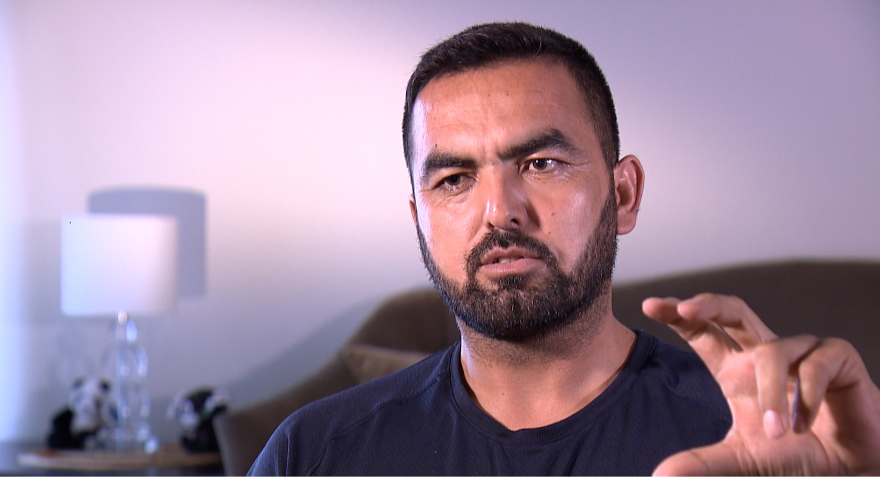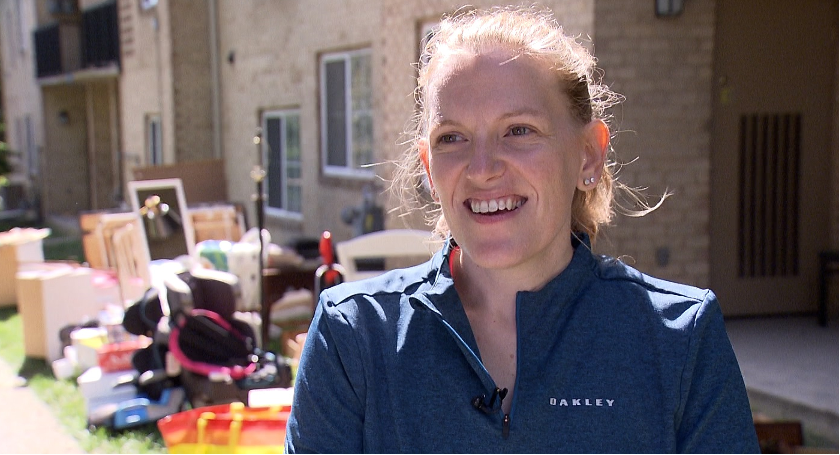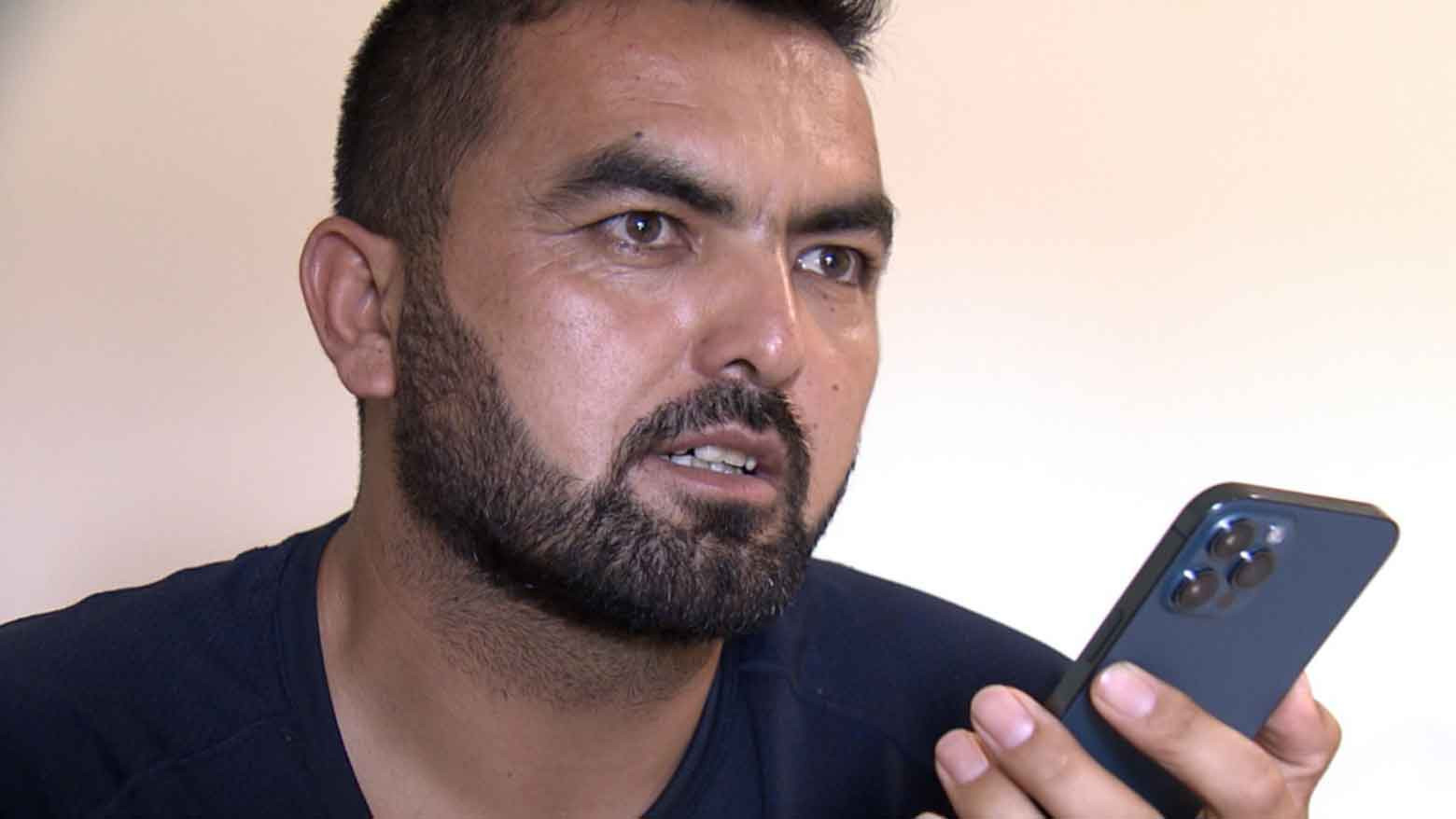We’re on the phone with one of Hasib Dellawar’s relatives in Afghanistan. It’s nearly midnight in Kabul, but the man on the other end of the line gives us a detailed look at what it’s like to live in a country that fell into the hands of the Taliban.
Dellawar serves as interpreter to relay his relative’s message in English. “Whatever the Taliban says is a total lie. Whatever they say in the media doesn’t match with what’s happening on the ground. They tell the media that they respect human rights and women’s rights but in reality, they’re so barbaric.”

The situation in Afghanistan that we’re listening to is starkly different from the place we’re conducting the interview — a cozy two-bedroom apartment in the quiet suburb of Alexandria, Virginia.
Thanks to his role working side by side with NATO and American forces as an interpreter and translator, Dellawar received a Special Immigrant Visa (SIV) last year. With the collapse of the Afghan government, his life was in immediate jeopardy, as anyone who helped the coalition troops became a primary target of the Taliban. Dellawar, his wife, and their three children were lucky enough to board a civilian aircraft in Kabul on August 15 — the very day that Hamid Karzai Airport fell to the new regime. He recounts his harrowing journey, anxious and unsure whether the plane would take off as the Taliban closed in.
Since moving to Virginia, he and his family can finally breathe a sigh of relief, but Dellawar is very much worried about those he left behind.
“I’m concerned about my father because he used to be an employee of the former Afghan government,” he says, showing us a picture of his father and his grandchildren. Restrictions on the SIV meant that Dellawar was unable to bring more family members with him. He says friends and former colleagues frequently text him about having to flee their homes because the Taliban has been knocking door to door to find them.
A new set of challenges
It’s been two months since Dellawar’s family has resettled in Alexandria. Although they no longer fear the Taliban, they face a new set of challenges navigating life in a different country.
Dellawar says even mundane tasks, like going to the bank, are difficult because most appointments have to be made online. He doesn’t have a car or a driver’s license, so he has to walk at least six miles a day to take his kids to and from school. He’s also concerned about being able to pay the rent — the housing assistance he receives from community organizations may run out in a few months. He collects around $900 a month in food stamps to feed his family of five, but he’s yet to receive cash assistance from the US government. While grateful for the help, Dellawar says he wants to find a job as soon as possible to stand on his own two feet and support his family.
Watch video: 03:50
“Our brothers and sisiters”
Although the Dellawars came to the US with nothing more than the clothes on their backs, their home is fully furnished, thanks to the help of people like Amy Marden.
Marden was formerly a volunteer at a community organization that works with the US government to help Afghan families resettle in America. But she soon realized that many nonprofits were overwhelmed. That led her to launch Resettlement Action DC (REACT DC), a nonprofit that provides comprehensive services for Afghan refugees in the Washington area. Along with personally collecting and delivering donated furniture and household items to Dellawar, she also helped him enroll his children in school.
As a military spouse, Marden felt a strong calling to assist Afghans who served alongside US forces.
“We consider them our brothers and sisters,” she says. “They helped us with the war effort, and they were our close allies and now they need our help. I think we feel that it’s our duty to be there for them.”

Marden has already helped about 20 families feel more at home in America, but that’s just a tiny fraction of those in need. According to the Biden administration, only 3% of the 60,000 Afghan refugees in the US that have been fully processed are SIV holders. She says REACT DC’s next goal is to support non-SIV-holding Afghans residing at US military bases, as they aren’t eligible to receive most benefits once they leave the facility.
Asking the world for help
When asked about the withdrawal of American forces from Afghanistan, Dellawar says the hurried pullout was wrong.
“It was a big mistake that the US government made to suddenly pull forces without bringing reconciliation among these rivals,” he says.
He adds that the US should have allowed a temporary government to come together. “There were 20 years of hard work and achievements, but now, immediately, everything has changed.”
Dellawar laments that he can’t do more for his country, but he says he’ll continue to raise his voice through the help of the media. He asks us not to forget about the people of Afghanistan. And he calls on the US government, the UN, and the rest of the international community to take action, especially when it comes to protecting human rights.
“I’m asking the world to do something. We don’t have to sit still and watch what’s going on.”

